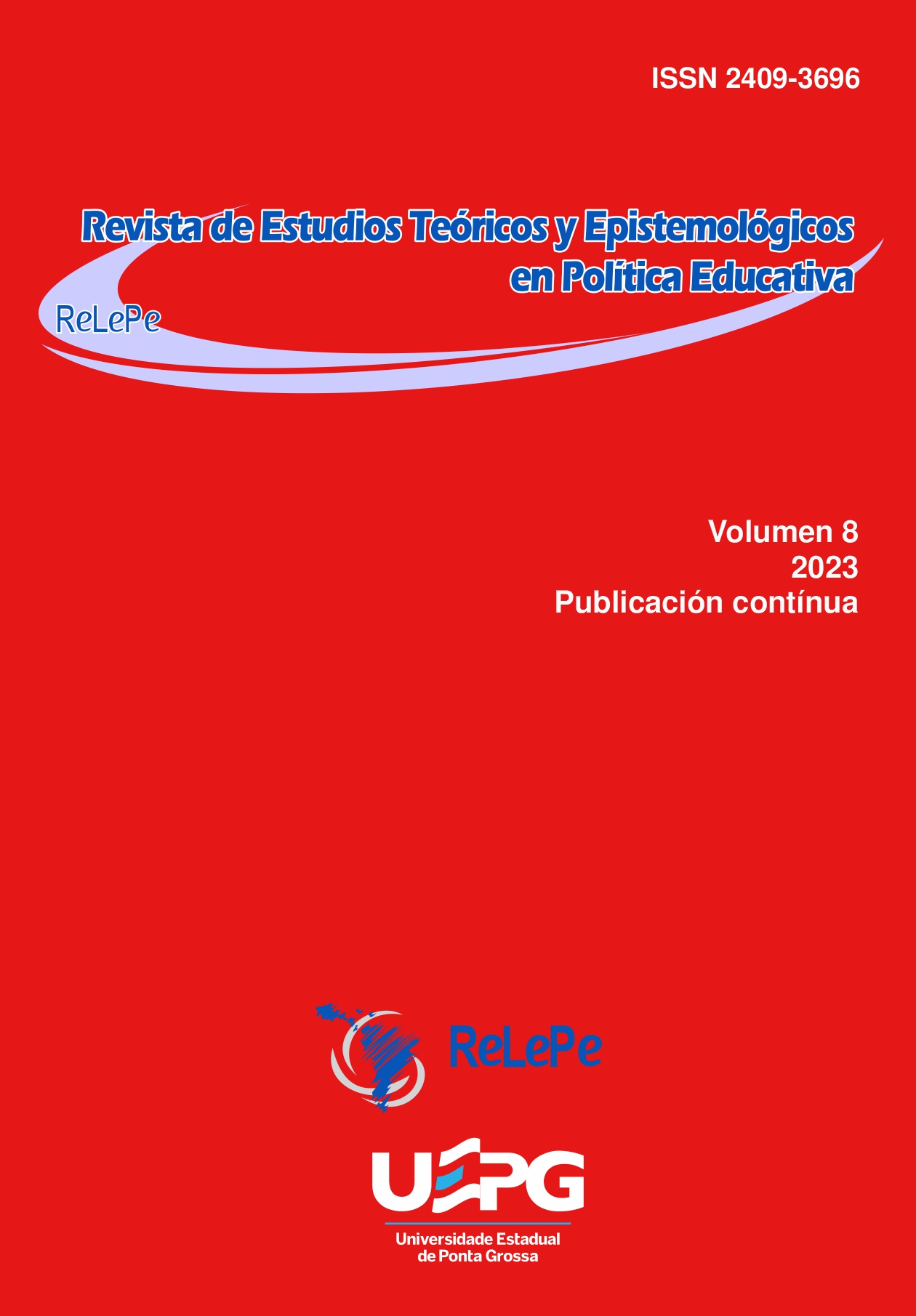The comprehensive interview as a method for studying education policies: theoretical and empirical notes
DOI:
https://doi.org/10.5212/retepe.v.8.22029.014Abstract
This article aims to discuss the use of the comprehensive interview as a method for investigating education policies that focus on the locus of execution and the perspective of implementing agents. To do so, it is based on theoretical articulations from a bibliographical review and on the sharing of an empirical investigation report in the Escola Viva Program, developed by the Government of the State of Espírito Santo, Brazil. Articulating about the importance of context and actors in the study of education policies, it is based on the propositions of Ball (1994) and Lotta (2014). The comprehensive interview as an investigation technique is based on the method developed by Kauffmann (2013). The results obtained allow to consider that the referred technique presents itself as a fruitful method of empirical investigation for education policies. Its use enables the researcher to read the meanings attributed by school actors, including challenges, modifications, support and resistance. It was possible to conclude that the comprehensive interview proved to be a valid, viable and fundamentally important data collection technique for the qualitative investigation of education policies, with emphasis on its more humanized and democratic aspects and its ability to capture new and unknown elements that can contribute to deepen the knowledge of this field of study.
Keywords: Education policies. Research methodology. Comprehensive interview. Policy contexts. Implementing agents.
Downloads
Metrics
Downloads
Published
How to Cite
Issue
Section
License
1. Autores mantém os direitos autorais e concedem à revista o direito de primeira publicação, com o trabalho simultaneamente licenciado sob a Licença Creative Commons Atribuição 4.0 Internacional que permite o compartilhamentodo trabalho com reconhecimento da autoria e publicação inicial nesta revista.2. Autores têm autorização para assumir contratos adicionais separadamente, para distribuição não-exclusiva da versão do trabalho publicada nesta revista (ex.: publicar em repositório institucional ou como capítulo de livro), com reconhecimento de autoria e publicação inicial nesta revista.
3. Autores têm permissão e são estimulados a publicar e distribuir seu trabalho online (ex.: em repositórios institucionais ou na sua página pessoal) a qualquer ponto antes ou durante o processo editorial, já que isso pode gerar alterações produtivas, bem como aumentar o impacto e a citação do trabalho publicado (Veja O Efeito do Acesso Livre).
__________
Los autores que publican en esta revista están de acuerdo con los siguientes términos:
1. Los autores conservan los derechos de autor y garantizan a la revista el derecho de ser la primera publicación del trabajo al igual que licenciado bajo una licencia de Creative Commons Reconocimiento 4.0 Internacional que permite a otros compartir el trabajo con un reconocimiento de la autoría del trabajo y la publicación inicial en esta revista.
2. Los autores pueden establecer por separado acuerdos adicionales para la distribución no exclusiva de la versión de la obra publicada en la revista (por ejemplo, situarlo en un repositorio institucional o publicarlo en un libro), con un reconocimiento de su publicación inicial en esta revista.
3. Se permite y se anima a los autores a difundir sus trabajos electrónicamente (por ejemplo, en repositorios institucionales o en su propio sitio web) antes y durante el proceso de envío, ya que puede dar lugar a intercambios productivos, así como a una citación más temprana y mayor de los trabajos publicados (Véase The Effect of Open Access) (en inglés).
__________
If the article is accepted for publication, copyright of this article will be vested in the The Journal of Theoretical and Epistemological Studies on Education Policy.

Este obra está licenciado com uma Licença Creative Commons Atribuição 4.0 Internacional.

This work is licensed under a Creative Commons Attribution 4.0 International License.

Este obra está bajo una licencia de Creative Commons Reconocimiento 4.0 Internacional.





